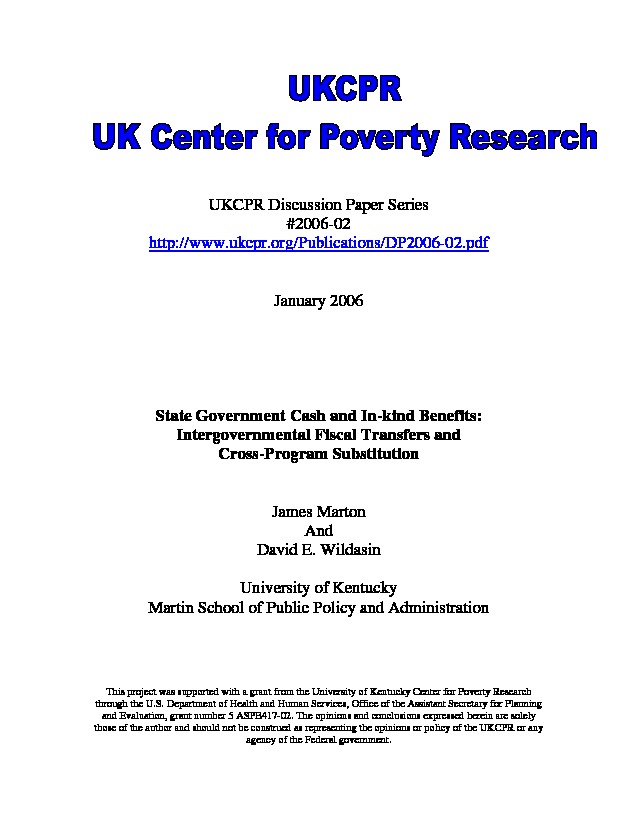US states provide both cash and health insurance benefits for the poor, partially financed by fiscal transfers from the Federal government. The 1996 welfare reform drastically reduces Federal support for cash transfers at the margin, lowering the relative price to states of providing benefits to the poor through Medicaid. This paper analyzes the comparative-statics response of state governments to such changes in intergovernmental transfers, showing (in central cases) that they can contribute not only to reductions in state expenditures on cash benefits but to increases in expenditures on Medicaid, whether or not beneficiary populations are mobile among states.
Research
Welfare ReformPDF Thumbnail
